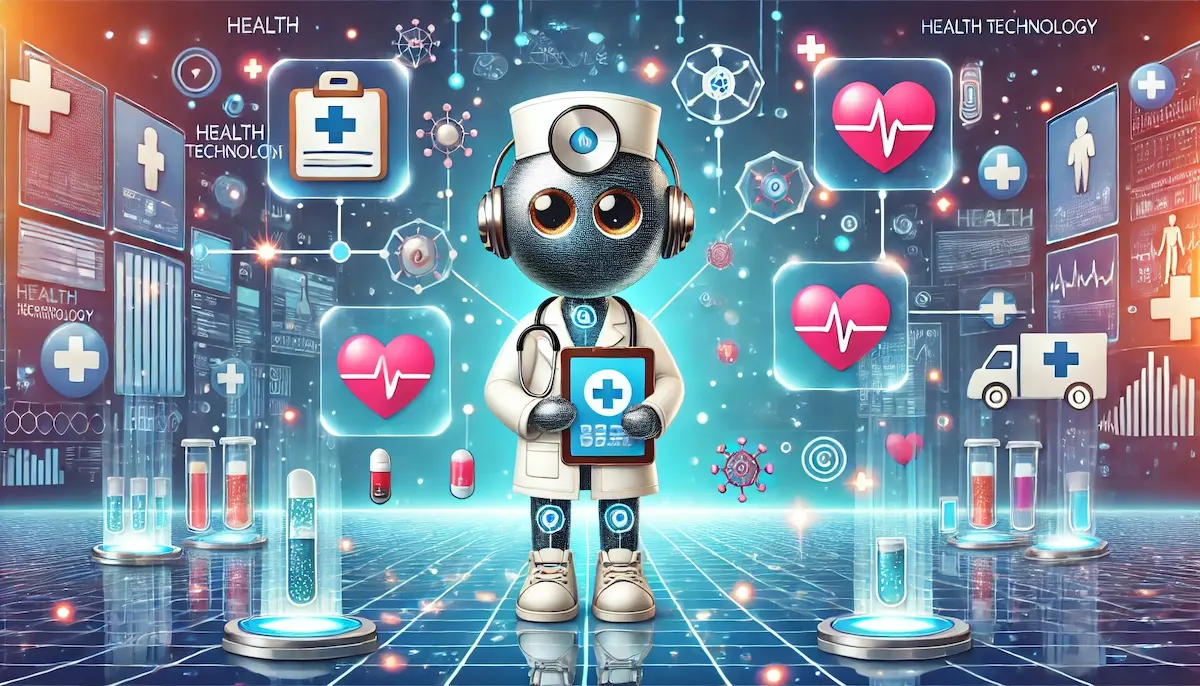Healthtech, a blend of healthcare and technology, is revolutionizing the way medical services are delivered, improving patient outcomes, and streamlining healthcare operations. By integrating cutting-edge technologies into the healthcare sector, healthtech aims to enhance the quality, efficiency, and accessibility of medical care. This article explores what healthtech is, how it works, and its benefits and applications.
What Is Healthtech?
Healthtech refers to the use of technology to develop and improve healthcare products, services, and processes. This broad field encompasses a wide range of innovations, including telemedicine, wearable devices, electronic health records (EHRs), artificial intelligence (AI), and more. Healthtech solutions are designed to address various challenges in the healthcare industry, such as rising costs, inefficiencies, and the need for personalized care.
How Does Healthtech Work?
Healthtech works by integrating technology into different aspects of healthcare to enhance patient care and operational efficiency. Here are some key technologies and their applications in healthtech:
Telemedicine
Telemedicine allows healthcare providers to deliver care remotely through video conferencing, phone calls, or chat. This technology expands access to medical services, especially for patients in remote or underserved areas.
Wearable Devices
Wearable devices, such as fitness trackers and smartwatches, monitor health metrics like heart rate, activity levels, and sleep patterns. These devices provide real-time data that can be used to track and improve health.
Electronic Health Records (EHRs)
EHRs digitize patient records, making them easily accessible to healthcare providers. This improves the coordination of care, reduces errors, and enhances the overall efficiency of healthcare delivery.
Artificial Intelligence (AI) and Machine Learning
AI and machine learning algorithms analyze vast amounts of data to identify patterns, predict outcomes, and assist in clinical decision-making. Applications include:
- Diagnostic Tools: AI-powered systems can assist in diagnosing diseases by analyzing medical images and patient data.
- Predictive Analytics: Predicting patient outcomes and potential health risks based on historical data.
- Personalized Treatment: Tailoring treatment plans to individual patients based on their unique genetic makeup and health history.
Mobile Health (mHealth) Apps
mHealth apps provide tools for managing health and wellness. These apps offer features such as medication reminders, fitness tracking, mental health support, and access to medical information.
Robotics
Robotic technologies are used in various medical applications, including surgery, rehabilitation, and patient care. Robots can perform precise surgical procedures, assist in physical therapy, and provide companionship and support to patients.
Blockchain
Blockchain technology ensures secure and transparent record-keeping, protecting patient data from unauthorized access and fraud. It is particularly useful in managing electronic health records and ensuring the integrity of medical information.
Benefits of Healthtech
Improved Patient Outcomes
Healthtech solutions enable early detection and accurate diagnosis of diseases, leading to better patient outcomes. Personalized treatment plans and real-time health monitoring contribute to more effective care.
Enhanced Access to Care
Technologies like telemedicine and mobile health apps make healthcare more accessible, especially for people in remote or underserved areas. Patients can receive medical advice and treatment without the need for travel.
Increased Efficiency
Healthtech streamlines administrative processes, reducing the time and effort required for tasks such as record-keeping, billing, and scheduling. This allows healthcare providers to focus more on patient care.
Cost Reduction
By improving efficiency and reducing the need for in-person visits, healthtech can lower healthcare costs. Preventive care and early intervention also help in reducing long-term medical expenses.
Better Data Management
Electronic health records and blockchain technology ensure secure and efficient management of patient data. This improves the accuracy of medical records and enhances the coordination of care.
Applications of Healthtech
Remote Patient Monitoring
Wearable devices and remote monitoring tools allow healthcare providers to track patients’ health metrics in real-time. This is particularly beneficial for managing chronic conditions such as diabetes and heart disease.
Virtual Consultations
Telemedicine platforms enable virtual consultations between patients and healthcare providers. This is convenient for routine check-ups, follow-up appointments, and mental health counseling.
Health and Wellness Apps
mHealth apps offer various features to support health and wellness, including fitness tracking, dietary advice, mental health support, and chronic disease management.
Advanced Diagnostics
AI-powered diagnostic tools assist in interpreting medical images, identifying patterns, and predicting disease outcomes. This enhances the accuracy and speed of diagnosis.
Surgical Robotics
Robotic surgery systems provide precision and control, allowing surgeons to perform complex procedures with minimal invasiveness. This results in faster recovery times and reduced risk of complications.
Genomic Medicine
Advances in genomics and personalized medicine enable healthcare providers to tailor treatments to individual patients based on their genetic profiles. This approach improves the effectiveness of treatments and reduces adverse effects.
Conclusion
Healthtech is transforming the healthcare industry by leveraging technology to improve patient care, enhance efficiency, and reduce costs. From telemedicine and wearable devices to AI and robotics, healthtech innovations are making healthcare more accessible, personalized, and effective. As technology continues to evolve, the potential for healthtech to revolutionize healthcare delivery and outcomes is immense.
Blockfine thanks you for reading and hopes you found this article helpful.
